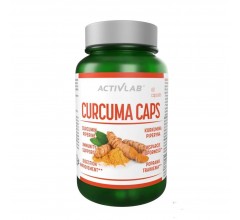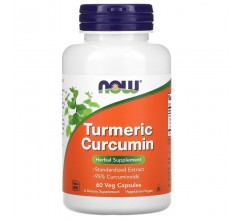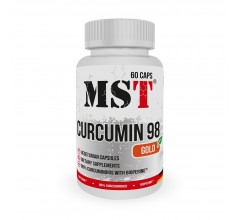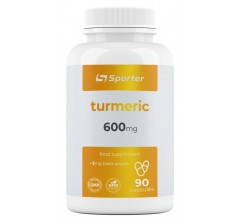Now Foods Turmeric Curcumin 665 mg 60 Veg Capsules
10009
1
850грн.
- VIP: 782грн.
- GOLD: 808грн.
- SILVER: 825грн.
Showing 1 to 2 of 2 (1 Pages)
Turmeric is used to relieve pain and inflammation, such as osteoarthritis. It should be borne in mind that curcumin is poorly absorbed into the blood, it is better to eat it with fatty foods. The effect is enhanced with the right combination of spices. For example, the substance piperine, contained in black pepper, significantly improves the absorption of curcumin-on average by 2000%.
The spice is recommended for hay fever, liver disease and itching. Some people use turmeric for heartburn and to improve memory, but there is no strong scientific evidence to support the effectiveness of the seasoning in these cases. Turmeric contains essential oils and many useful substances: vitamins C, K and B vitamins, iron, phosphorus, valine, iodine and calcium. In 100 grams of spices is part of 2-7% dietary minerals, 3-7% essential oils, 6-8% protein, 60-70% carbohydrates and 3% to 7% body fat.
Relieving inflammation
Scientists believe that chronic inflammation is the main cause of many common diseases. This includes heart disease, metabolic syndrome, Alzheimer's disease, and various degenerative conditions. Curcumin has a strong anti-inflammatory effect.
Antioxidant properties
The oxidation of the body is considered one of the mechanisms that accelerate aging and provoke disease. It involves free radicals that react with organic substances-proteins, fatty acids, and DNA. Antioxidants, such as turmeric, protect the body from free radicals. In addition, they increase the activity of their own antioxidant enzymes.
Improving the functioning of the brain
Previously, it was believed that neurons lose their ability to divide and multiply over time. However, it is now known that they are able to form new bonds and increase in number. One of the main causes of this process is brain — derived neurotrophic factor (BDNF), a type of growth hormone. Many well-known diseases, including depression and Alzheimer's disease, are associated with a decrease in the level of this hormone. Curcumin can be added to food for prevention. It increases the level of the brain hormone BDNF, which increases the growth of new neurons and fights various degenerative processes.
Reducing the risk of heart disease
Heart disease occurs for many reasons: from genetic predisposition to lifestyle. But scientists are confident that curcumin can prevent health problems. It improves the function of the endothelium lining the walls of blood vessels. Their destruction provokes the development of heart diseases, failures with blood pressure and deterioration of blood clotting.
The spice is recommended for hay fever, liver disease and itching. Some people use turmeric for heartburn and to improve memory, but there is no strong scientific evidence to support the effectiveness of the seasoning in these cases. Turmeric contains essential oils and many useful substances: vitamins C, K and B vitamins, iron, phosphorus, valine, iodine and calcium. In 100 grams of spices is part of 2-7% dietary minerals, 3-7% essential oils, 6-8% protein, 60-70% carbohydrates and 3% to 7% body fat.
Relieving inflammation
Scientists believe that chronic inflammation is the main cause of many common diseases. This includes heart disease, metabolic syndrome, Alzheimer's disease, and various degenerative conditions. Curcumin has a strong anti-inflammatory effect.
Antioxidant properties
The oxidation of the body is considered one of the mechanisms that accelerate aging and provoke disease. It involves free radicals that react with organic substances-proteins, fatty acids, and DNA. Antioxidants, such as turmeric, protect the body from free radicals. In addition, they increase the activity of their own antioxidant enzymes.
Improving the functioning of the brain
Previously, it was believed that neurons lose their ability to divide and multiply over time. However, it is now known that they are able to form new bonds and increase in number. One of the main causes of this process is brain — derived neurotrophic factor (BDNF), a type of growth hormone. Many well-known diseases, including depression and Alzheimer's disease, are associated with a decrease in the level of this hormone. Curcumin can be added to food for prevention. It increases the level of the brain hormone BDNF, which increases the growth of new neurons and fights various degenerative processes.
Reducing the risk of heart disease
Heart disease occurs for many reasons: from genetic predisposition to lifestyle. But scientists are confident that curcumin can prevent health problems. It improves the function of the endothelium lining the walls of blood vessels. Their destruction provokes the development of heart diseases, failures with blood pressure and deterioration of blood clotting.
You watched




